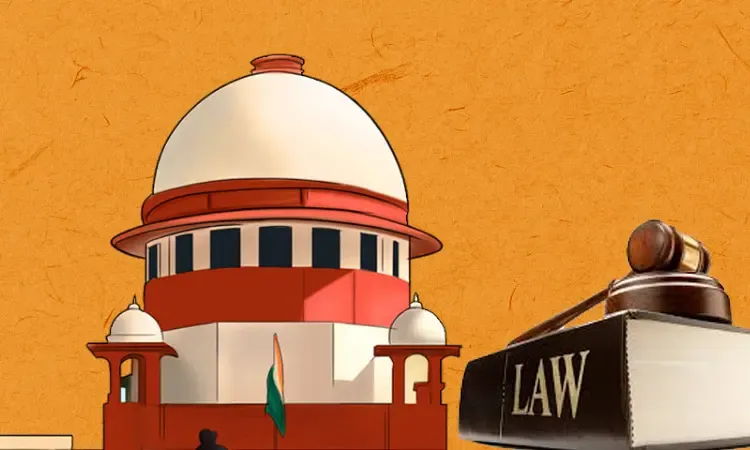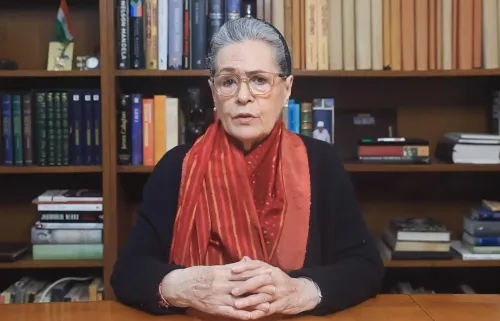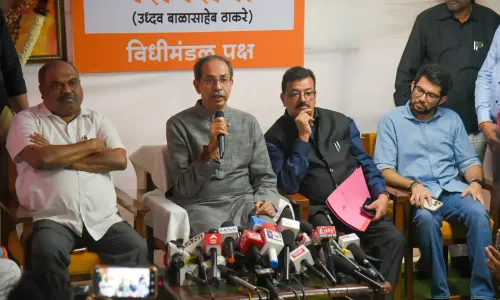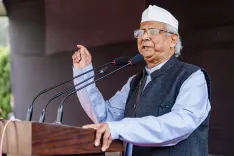Should Courts Show Restraint? SC Denies Blanket Stay on Waqf Amendment Act, Offers Limited Interim Relief

Synopsis
Key Takeaways
- Supreme Court denies blanket stay on Waqf Amendment Act, 2025.
- Limited interim relief provided for certain provisions.
- Court emphasizes judicial restraint in staying laws.
- Specific provisions regarding waqf creation and land classification contested.
- Significant implications for waqf property management in India.
New Delhi, Sep 15 (NationPress) The Supreme Court on Monday opted against issuing a blanket stay on the implementation of the Waqf (Amendment) Act, 2025, while providing limited interim relief concerning specific contentious provisions.
A Bench led by Chief Justice of India (CJI) B.R. Gavai remarked that courts ought to exercise caution when requested to stay laws passed by Parliament.
“It is now a well-established legal principle that courts should be hesitant to grant interim relief in the form of staying provisions of an enactment,” stated the Bench, which also included Justice A.G. Masih, adding that such relief should only be granted in “rare and exceptional circumstances.”
“Given the overall situation, we do not find sufficient grounds to stay the provisions of the entire statute. The request for a blanket stay on the act has, therefore, been denied,” the apex court declared, dismissing the plea for a comprehensive stay on the act's implementation.
Simultaneously, the CJI Gavai-led Bench issued certain protective directives and stayed the stipulation that only a person “professing Islam for at least five years” can establish a waqf, until regulations are developed for its execution.
“The segment of clause (r) of Section 3 of the amended Waqf Act stating ‘any person demonstrating that he has professed Islam for at least five years’ will remain stayed until rules are established by the state government to provide a mechanism for determining whether an individual has been practicing Islam for at least five years,” the apex court noted.
Additionally, provisions that empower designated officers to classify disputed properties as government land pending verification have also been suspended.
“Upon initiating an inquiry under Section 3C of the amended Waqf Act until the Tribunal’s final decision under Section 83 of the amended Waqf Act, subject to further High Court orders in an appeal, no third-party rights shall be created concerning such properties,” the bench ordered.
It also instructed that the Central Waqf Council — established under Section 9 of the amended Waqf Act — should not have more than 4 non-Muslim members out of a total of 22. “Regarding the (State Waqf) Board formed under Section 14 of the amended Waqf Act, it is directed that it should not have more than 3 non-Muslim members out of 11,” the top court added.
While it chose not to stay Section 23 of the amended Waqf Act, the CJI Gavai-led Bench urged that “efforts should be made to appoint the Chief Executive Officer of the Board, who serves as the ex officio Secretary, from within the Muslim community.”
On the contentious removal of waqf-by-user, the apex court refrained from immediate intervention, stating: “If Mutawallis (custodians) could not register the waqf for 102 years as required by prior provisions, they cannot claim entitlement to continue with the waqf even if it remains unregistered.”
It observed that those who failed to apply for waqf property registration over three decades cannot now contend that the legal requirement of submitting a waqf deed copy is unreasonable.
“If the legislature, upon identifying the misuse of waqf properties, determines that all applications after the enactment of the impugned Act must be accompanied by a waqf deed copy, this cannot be deemed unreasonable,” the CJI Gavai-led bench stated. “Moreover, if the legislature, in 2025, discovers that the concept of ‘Waqf by User’ has led to significant government property encroachment and takes action to eliminate this provision, such amendment cannot prima facie be regarded as unreasonable,” it added.
The Supreme Court also rejected the request to stay Section 3D of the amended Waqf Act, which invalidates any declaration of protected monuments or areas as waqf, emphasizing that this provision was enacted following concerns raised by the Archaeological Survey of India (ASI) regarding challenges in preserving monuments due to overlapping claims by mutawallis. Dismissing claims that Section 3D deprived Muslims of religious practices, the apex court highlighted that Section 5(6) of the Ancient Monuments and Archaeological Sites and Remains Act, 1958 allows for customary religious practices even if the area is a protected monument.
Further, the apex court initially opined that Section 3E of the amended Waqf Act, which forbids declaring land in Scheduled or Tribal areas as waqf property, is not unreasonable and has a clear connection to its intended purpose.
“We believe that a provision like Section 3E of the amended Waqf Act, enacted with the clear intent of protecting one of the most marginalized and vulnerable groups in our country, namely the Scheduled Tribes, cannot be seen as lacking a connection to the objectives sought to be achieved,” the bench remarked.
The apex court clarified that its comments were made on a prima facie basis to assess whether interim relief should be granted.
“The observations made…will not hinder the parties from presenting arguments regarding the validity of the provisions contained in the amended Waqf Act or any of its provisions,” it added.
This decision seems to be a setback for petitioners contesting the Waqf (Amendment) Act, 2025, on the grounds of violating Articles 14, 15, 25, 26, 29, and 30 of the Constitution. The petitioners contended that the amendments aimed to expropriate waqf properties, asserting that “while the impugned Act claims to ‘protect’ Waqfs, its true intention is to seize or expropriate waqf properties.”
The Supreme Court considered the perspectives of the petitioners and the Centre over three hearings before reserving its decision on the issuance of a stay on the Waqf (Amendment) Act, 2025 — a law strongly defended by the Union government as a measure to mitigate misuse of waqf properties and ensure enhanced transparency in their management.










